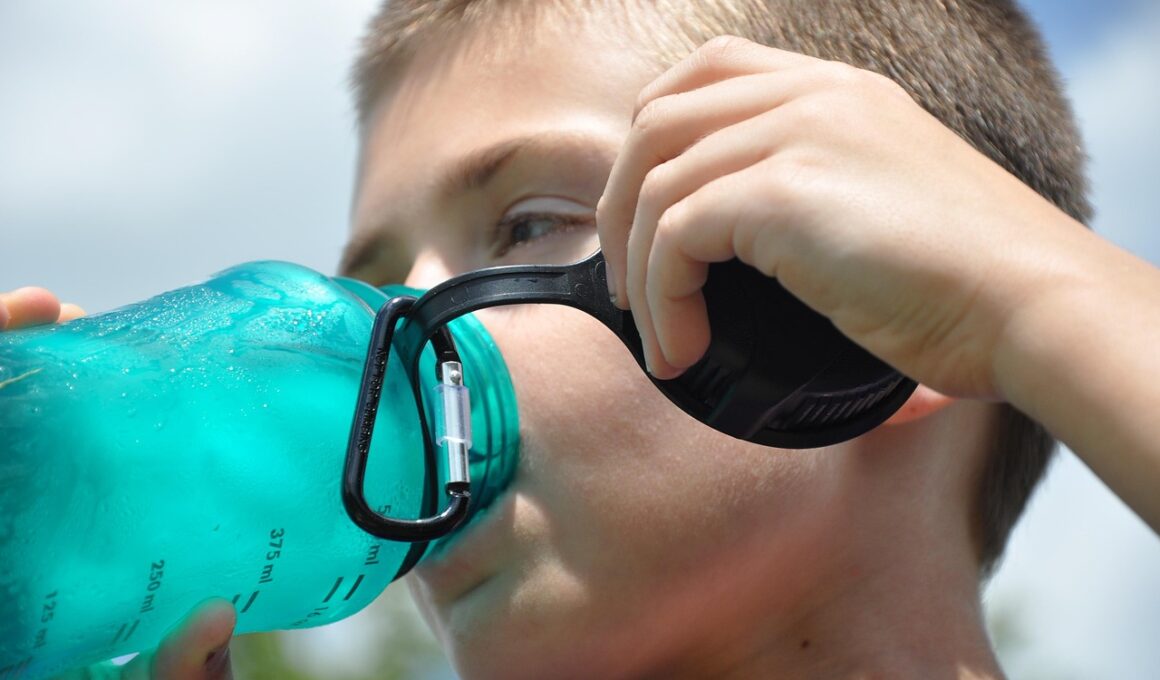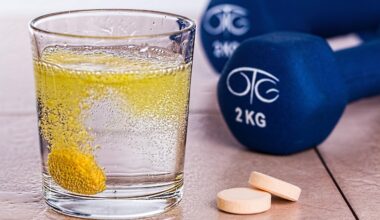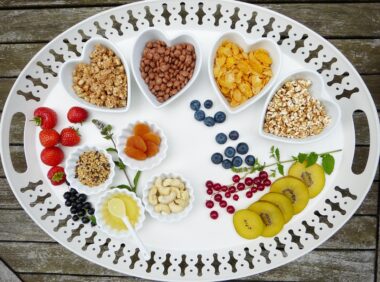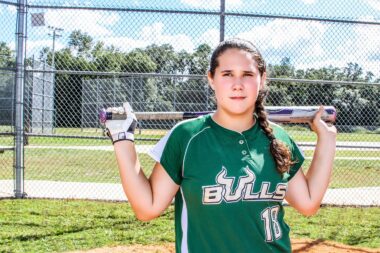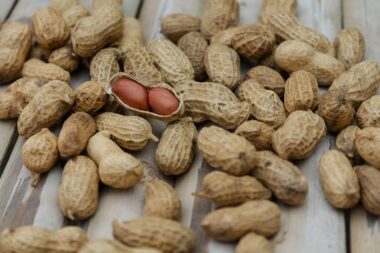Pre-Workout Hydration Strategies for Teen Athletes
Hydration is a critical element for teen athletes, especially prior to intense workouts or competitions. Proper hydration allows for optimal performance and decreases the chance of dehydration during vigorous activities. For teenagers involved in sports, it’s essential to start hydrating well in advance of physical exertion. Encouraging them to drink water throughout the day can help establish a routine. Aim for at least 16 ounces of water about 2 hours before playing or training. This ensures that their body is well-prepared. Various physiological factors make it imperative for young athletes to be vigilant regarding their fluid intake. Their bodies are still developing, and they are more susceptible to heat stress, which can be dangerous. Water is the best option for hydration, given its accessibility and effectiveness. However, if the activities involve prolonged exertion, electrolyte-rich sports drinks may also be beneficial. They help in replenishing lost electrolytes, especially after heavy sweating. Such preparations are vital in preventing fatigue, cramps, and poor performance, allowing athletes to train at their best.
Understanding the role of electrolytes is crucial for teen athletes when it comes to hydration strategies. Electrolytes, such as sodium and potassium, play a vital role in muscle function and hydration balance. Young athletes can lose significant amounts of these essential minerals during workouts. Replenishing them is key to maintaining peak performance. Consuming snacks that contain electrolytes can be very effective. Options like bananas, oranges, or even electrolyte tablets can help restore balance. For more intense workouts lasting over an hour, teens should consider sports drinks designed to replace lost fluids and electrolytes. Monitor the sugar content as excessive sugars can negate hydration benefits. Besides sports drinks, enhancing regular water with cucumber or lemon slices can motivate teens to drink more. The focus should be on hydration before, during, and after workouts. Post-workout hydration is often overlooked, but crucial for recovery. Encourage teens to drink water or an electrolyte drink within 30 minutes after physical activities. Gaining awareness about hydration needs can set the foundation for better performance and overall health in teen athletes.
Timing Your Hydration
The timing of hydration significantly impacts athletic performance for teen athletes. Understanding when to hydrate can greatly enhance stamina during workouts. Simply drinking water right before exercising may not be sufficient. Instead, a hydration schedule can be highly beneficial. Encourage teens to consume fluids at specific intervals leading up to and during their physical activities. Ideally, drinking 6-8 ounces of water every 20 minutes during workouts can help keep hydration levels up. Establishing a pre-hydration routine can allow athletes to recognize their hydration needs more intuitively. Additionally, it’s important to monitor temperature and humidity levels, which play a role in fluid needs. Ensure teens are aware of warning signs of dehydration, such as dark urine or dizziness. Maintaining hydration through consistent intake leads to stronger performance and minimizes the risk of injury. Engaging in activities in hot or humid environments may necessitate more aggressive hydration strategies. Also, engaging in a group encourages positive competition regarding hydration habits. Educating teens about these factors enables them to make smarter choices concerning hydration, ensuring they perform at their peak.
Different types of fluids serve distinct purposes when it comes to hydration strategies for teen athletes. Water is universally recognized as the most essential resource, but other fluids also have their benefits. For example, coconut water is a great natural alternative, providing electrolytes without added sugars. It is crucial to distinguish between plain water and sugary or caffeinated beverages. Energy drinks targeted at adults may not be safe for teens due to their high caffeine content. Sports drinks should be reserved for specific scenarios, such as intense training sessions or prolonged sports events. Understanding the contents and purpose of different beverages can empower teens to make informed hydration choices. Parents and coaches should encourage exploration of various hydration options to discover what works best for each individual athlete. Moreover, planning hydration strategies needs consideration of the specific demands of each sport. Sports with higher endurance demands may necessitate more thorough hydration strategies than others that require short bursts of energy. Equipping athletes with knowledge about the right fluids will positively influence their performance throughout training and games.
Practical Tips for Effective Hydration
To enhance hydration strategies for teen athletes, incorporating practicality into their daily routine is crucial. Create a visual reminder, such as a colored water bottle, that encourages consistent hydration. Make it a habit for teenagers to carry a water bottle during school or practice sessions. This engagement not only makes it easier but also prompts them to drink more regularly. Involve athletes in tracking their water intake daily, creating an awareness that can lead to better habits. Teams can establish group challenges to see who can maintain proper hydration the longest. Educators and coaches should discuss hydration goals in meetings to promote group cohesion. When making drinks available during training or games, offer both water and electrolyte options to accommodate individual needs. Athletes should also be advised on how to gauge hydration status by paying attention to thirst levels and urine color. A pale yellow hue usually signifies good hydration, while dark urine indicates dehydration. Incorporating these practical tips creates an environment supportive of healthy hydration practices, which is essential for teen athletes to excel.
Finally, understanding the relationship between nutrition and hydration is vital for teen athletes. Hydrating properly isn’t just about drinking fluids; it also involves considering food sources. Many fruits and vegetables contain high water content, contributing to overall hydration. Snacks like watermelon, oranges, and cucumbers make for refreshing, hydrating options. Pre-game snacks should include a combination of carbohydrates for energy and some hydration aspects, like a smoothie or yogurt with fruits. Eating balanced meals throughout the day helps maintain hydration levels as well. Inadequate nutrition can counteract all hydration efforts. Focus on meals rich in vitamins and minerals to aid in overall performance. Teens should aim for a balanced approach to both hydration and nutrition to ensure the best outcomes. Engaging in education around the synergy between hydration and nutritional needs can lead to smarter choices. Discussing these concepts in team settings can create a stronger bond and shared understanding among young athletes. Therefore, integrating hydration into their daily routine alongside nutritious eating can significantly enhance performance in teen athletes.
Conclusion
In conclusion, effective hydration strategies for teen athletes play a pivotal role in their performance and health. From understanding the significance of timing and electrolyte balance to making informed beverage choices, the foundation of success begins with hydration. Implementing practical hydration tips ensures athletes remain mindful of their intake. Incorporating hydration tracking, visual reminders, and group challenges fosters a culture of awareness and support. Furthermore, linking nutrition and hydration reinforces the idea that what athletes consume matters. The impacts of proper hydration extend far beyond the game, promoting overall well-being vital for growing adolescents. Coaches, parents, and athletes should work together to create supportive environments where hydration is prioritized. Annual hydration assessments can also help educators to reevaluate strategies based on changing needs or demands in physical activities. Overall, ensuring young athletes are educated about hydration, they can make sensible choices that optimize performance. Promoting a holistic view of health through hydration will serve them well throughout their athletic journey. Encouraging lifelong hydration habits today will undoubtedly pay off later in life, as developed habits will contribute to their overall success.

